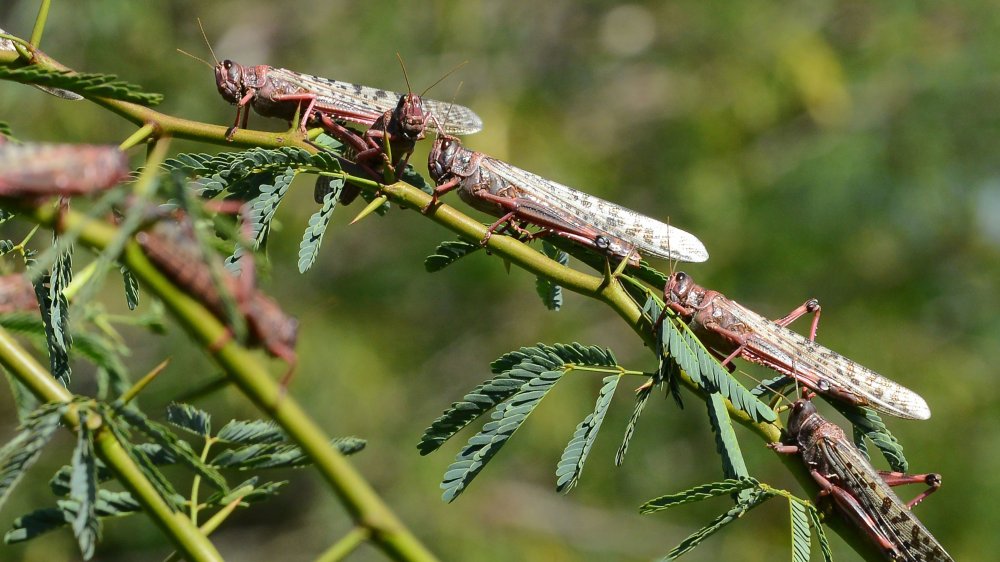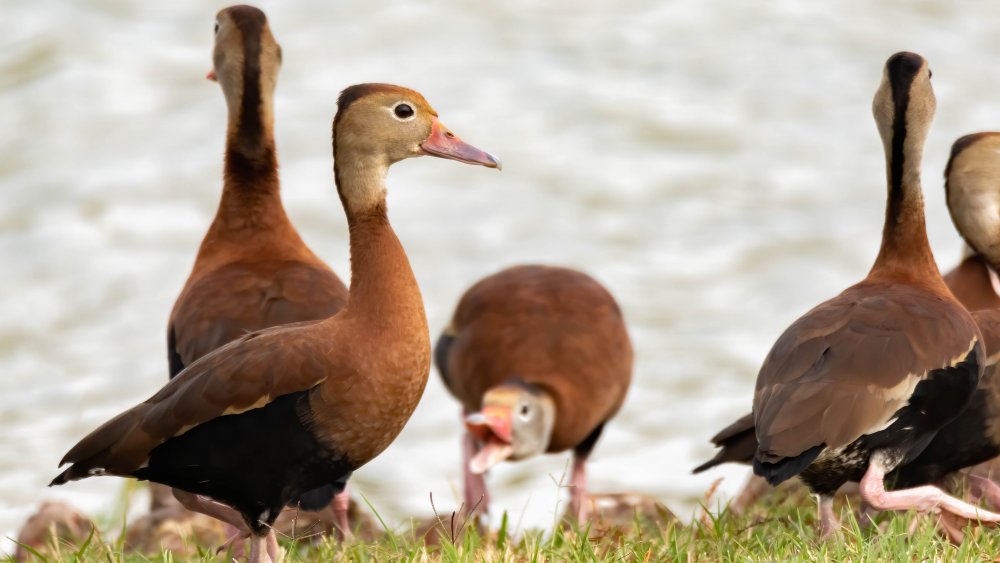China Considered Enlisting 100,000 Ducks In War On Locusts
Apocalyptic locust swarms aren't just a plague from biblical antiquity. NPR writes that in 2020, the already poverty-plagued Horn of Africa is under assault from swarms three times the size of New York City. An estimated 192 billion ravenous grass-holes have left desolation on their wake as they engulf field crops like winged wildfire. Kenya hasn't seen a locust invasion this bad in seven decades. The insatiable swarms have also feasted on swathes of South Asia and the Middle East, including India, Iran, and Pakistan, per Deutsche Welle. In Pakistan the problem became so dire that the country declared a national emergency.
With calamity looking increasingly imminent, China emerged as a possible locust-slayer. Per the Guardian, the Ningbo Evening News reported that China planned to send 100,000 ducks to Pakistan to turn the swarms into a smorgasbord. The news spread like locusts, according to Time, Lu Lizhi of the Zhejiang Academy of Agricultural Sciences was tapped to lead the effort in conjunction with a university in Pakistan. Lu called ducks "biological weapons" and said during a telephone interview that they could consume "more than 200 locusts a day." However, a different academic has argued that the duck idea isn't all it's quacked up to be.
In the desert a duck's goose would be cooked
The idea of China raising an army of ducks to battle locust hordes isn't new. The BBC notes that in 2000, China deployed a force of 30,000 ducks to eradicate its own locust problem. Those ducks killed it, and by "it" we mean locusts. However, Pakistan's climate adds a massive wrinkle to such a dynamic. Professor Zhang Long from the Zhejiang Provincial Institute of Agricultural Technology pointed out that trying to send waterfowl to the scorching desert areas of Pakistan doesn't sound like a recipe for success. Unless, of course, you're looking to slow-roast a duck in the sun.
The alternatives to ducks don't sound too appetizing, either. Zhang recommends drenching the locusts in pesticides. Of course, that means dumping a bunch of poison, which would be worse environmentally. Either way, the situation seems pretty ducked up.

